Truck haulage drives on thin ice
The decline in cargo haulage amount, the falling ruble and non-payments hit the hauliers harder than Platon Electronic Toll Collection (ETC) system and the Polish-Ukrainian blockade
Truck haulage as the main channel of transportation in the country is gradually falling into a deep prolonged crisis. General economic problems have hit the hauliers: the decline of the ruble, the decline of production, non-payments, — and also specific ones: Platon Electronic Toll Collection (ETC) system and the blockade. Hauliers' revenues are falling, and tariffs are not increasing. The market is predicted with the exit of most small companies and private truckers. However, medium and large companies are sure that 2016 will be without a disaster on the market.
There are fewer cargos, fuel and spare parts are more expensive, and nobody pays
The market of truck haulage is in deep crisis now. Primarily, the overall economic problems have led to this situation, as trucks represent the lion's share of all transported goods.
'First, the freight amount has dropped, the purchasing power of people has fallen, as well as demand for goods – there are fewer goods now,' says Sergey Sotnikov, the director of transport company Revers. 'Second, the euro exchange rate has led to the price increase of spare parts, but the cost of services has not increased, so, the expenditures have increased and the income of transport companies has decreased. Third, there is a lack of money in the economy – there are huge delays in payments, not only we have it, but also the builders and the customers, and the other spheres. The tendency is that everyone owes to everybody.'
Transportation costs are rising not only due to rising prices for parts but even simply due to the increased cost of fuel and lubricants.
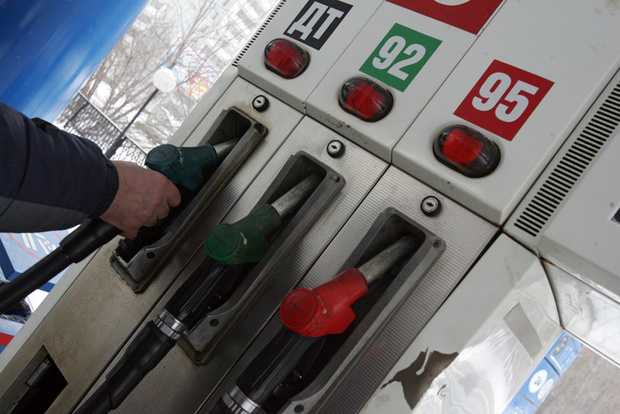
The only problem among other economic and foreign policy problems that hits the hauliers to a lesser extent is, ironically, the sanctions against European products.
'If we talk about international freight traffic, we usually didn't transport the sanctioned goods: we exported raw materials, chemical products, some technical products, and from abroad — the equipment, finishing materials, home appliances. All of these haven't come under sanctions, so what we used to transport we continue to. But those who focused on the transport of perishable goods, their amount has greatly decreased. But our Republic didn't have such international columns to Europe,' believes Lindval, a representative of the Association of International Truck Haulage (ASMAP) in Kazan.
'One might say, we do charity work'
Amid these problems, hauliers' revenues are plummeting, although official statistics are not available yet.
'Now there is a smooth fall – in a month it can be 2%, which is not very noticeable, but during the half a year it is 36%,' believes Sergey Sotnikov from Revers transportation company. 'The income has fallen, we cannot develop, cannot invest, cannot renew machinery. In the last year and a half, hardly anyone has renewed machinery.'
However, the hauliers cannot raise the tariffs radically amid the declining amount of cargo.
'Only tears left — given the fact that prices are increasing on everything, but on transportation – not. And after Platon no tears left,' complains Ilsur Shaikhutdinov from Avtoaliance. 'One might say, we do charity work, but for what? They kick us around, you owe everyone, work on everybody…'
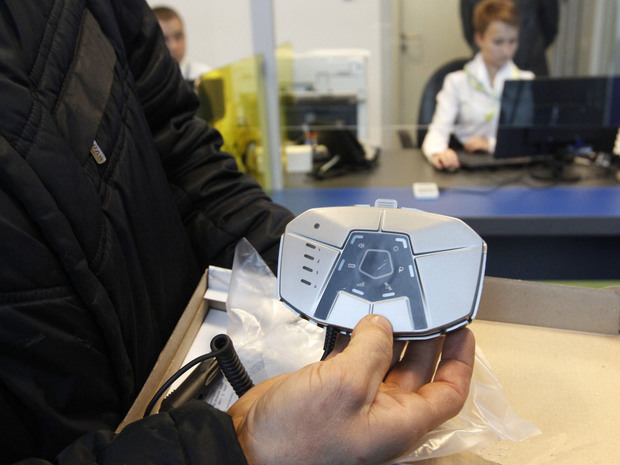
'We do pay, it is not that expensive'
To general economic problems added specific ones. Last year, the main headache for the hauliers was a road toll for federal highways, the strike against the introduction of which does not stop. However, most hauliers got used to living with Platon, and the main problem — the lack or incorrect operation of the devices — remains. [Platon Electronic Toll Collection (ETC) system collects toll charges offsetting the damage caused to Russian Federal Highways by vehicles exceeding 12 tonnes of gross vehicle weight (HGV N3 sub-category) – editor's note]
'At the beginning, Platon was a problem for us, and now we still have problems because there are not enough onboard devices,' says Leonid Steinberg, Director of TC Kama-Trucks. 'The price of Platon shouldn't be increased in any case. At least two years they should preserve the price at the same level, but greed knows no bounds. As a haulier, we could work without Platon, and to introduce it differently. We should not introduce it like it was done in Russia. All the trucks have already been equipped, but the problem is that devices fail, and there is no quick replacement. In large enterprises it is necessary to have rainy-day fund, but they do not have it. We have been working for two months, one percent of devices went out of service, and my friends have 91 devices, and 10 of them are out of order. The installation of the device is, of course, expensive.'
In addition to the devices themselves, uncertainty about further actions of the authorities towards their implementation gives additional concerns.
International hauliers even managed to find the positives in the implementation of the system of fixation of passage through federal highways.
'The introduction of Platon has had a positive effect for the international haulage, surprisingly,' suddenly declared Aleksander Lindval, a representative of ASMAP in Kazan. 'Uneducated, 'wild' hauliers left the market, a way for qualified personnel and large enterprises has cleared. Those who work through the 'black' forwarders failed to adapt, and we entered simply and easily. Almost all of our machines have been provided with special devices, everything is fine, we do pay, it is not so expensive. Our customers take it into account in rates. Statistics have finally appeared in the country, we didn't have it since Soviet times. Also, there will be some money for the roads respectively.'
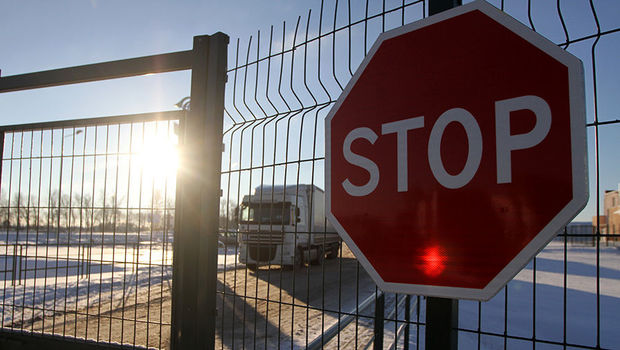
'It's even a good thing: they will not come here'
This year has brought new problems: the conflicts around the permits — permissions for cargo transportation through Turkey and Poland, as well as the blocking of Russian trucks in Ukraine, which almost led to the blockade of Russia from Europe.
'Contrary to common sense the permit transit to Germany is not given,' said Leonid Steinberg, the Director of TKF Kama-Trucks. 'We have the problem with Ukraine, because we thought to go transit through Ukraine to the Czech Republic, Slovakia, Italy. Then, issues regarding insufficient ferry provision to Germany from Lithuania, Latvia. They have just started adding ferries. What about the amount, I can't speak for everyone, but if we talk about us, they have fallen by about 30% in a couple of months.'
The embargo has affected not only international hauliers but also cargo companies that operate transportation within the country.
'If we talk about the blockade imposed by Poland, Turkey, Ukraine, it is surely reflected in the transport market,' says Sergey Sotnikov, the director of transport company Revers. 'The customers made a request, on about 9th [on 9th February — editor's note] — they needed to load cargo on 12th [on 12th February — editor's note] and to get it from Poland, respectively, they failed to do it, and without this cargo it was impossible to pass the object, although all the deadlines are burning. Accordingly, there is a chain of difficulties.'
However, at the end of February, in the course of a hard political struggle, they managed to make a breach in the blockade. On 19 February, an agreement was reached on the passage of trucks through the territory of Poland with special permission up to 15 April. Later, an agreement was signed on a limited number of permits.
'If we talk about the blockade, the situation is working now, people are working on that issue, attracting our experts,' says Aleksander Lindval, a representative of ASMAP in Kazan. 'Well, the issue will be resolved with Poland as well as with Ukraine in any way. Cargo should be imported, despite the delays.'
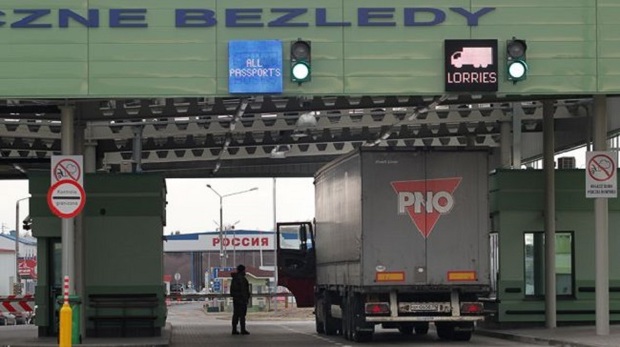
According to Ilsur Shaikhutdinov, General Director of Avtoalians, the blockade even brought a certain benefit for the domestic freight market:
'It's even a good thing: they will not come here. They [Polish hauliers – editor's note] come and supposedly are not to work here – just brought and left, but they leave here and ride for months. We ourselves do not have a lot of work, and they — another problem. So, maybe it's even, on the contrary, a good thing that they will not come here, damn.'
'The fact that smaller hauliers will leave the market, is a normal process'
Nevertheless, the freight market begins to decline in the number of players.
'Those companies, whose trucks already do not operate, now don't even know which transport to sell. It's just unreal because there is no buyer – there is no work. I think, only large and public hauliers will left – there are all signs. Every year the situation is getting worse and worse and worse,' believes Ilsur Shaikhutdinov, Director General of Avtoalians.
Leonid Steinberg, the head of Kama-Trucks, also predicts the reduction:
'Small and medium businesses, especially enterprises that have one or two trucks, is under a big question in 2016.'
The majority of large and medium hauliers, contrary to all the negative trends, intend to continue the work.
'The number of vehicles has preserved, the number of goods has dropped by 3% — both international and domestic. And we are constantly searching, constantly looking for a place to work – no difference to us where to go. So,we have constant reorientation. The situation in our transport industry is not much different from what happens in the country. Not only our weak players leave the market. The only question is: where will they go? It's not a shock therapy, as in 2008, when just zap and it's done,' tells Sergey Sotnikov, the director of transport company Revers.
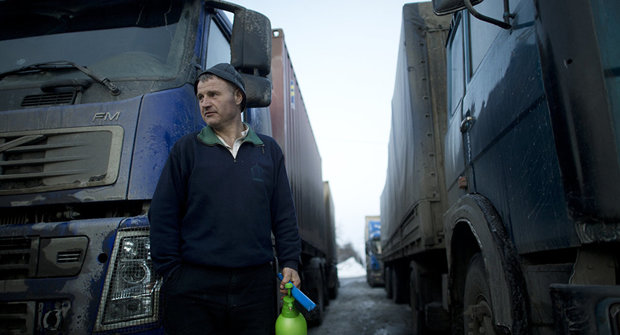
Aleksander Lindwal from ASMAP is sure that the freight market will be able to avoid major shocks, at least in the coming year:
'What to expect in 2016? The situation is stable now: some bursts of traffic are not expected, as well as drastic decline. We will work in the current economic realities, everything will be fine. And the fact that smaller hauliers will leave the market, is a normal process, the laws of economy. They will not withstand competition with large companies.'